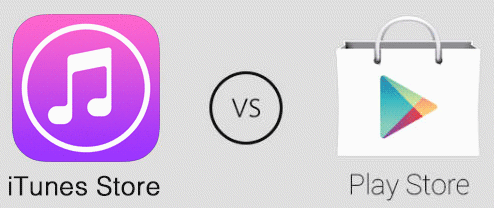
 You do not need to convert your music files when you download them from Google Play Music. The good news is that it's super easy and relatively quick (depending on how much music you've purchased via Google).īefore we get into the details of how to accomplish this feat, let's clear up some of the misconceptions and rumors floating around the web. So let's start with the bad news: if you want to move your Google Play Music over to iTunes, you're going to have to do it manually. So if you connect your iPhone to your computer (or Mac), your Google Play Music will not automatically sync. There are no real plug and play options either. Your Google Play Music purchases will not automatically (or magically) transfer over to iTunes. Multiplying 300MB with 50,000 songs means that Google Play Music is offering 15TB of free storage.First things first: there is no practical way to automatically sync Google Play Music with iTunes. Each song that you upload to Google Play Music can be as large as 300MB, according to. In terms of features that are available for free, Google Play Music appears to be ranked at the top because 50,000 songs is the best offer I have seen so far. Spotify Premium offers ad-free music, playlist shuffling and creation, on-demand streaming of any song, offline listening and high-quality audio for $9.99 per month. Amazon Music lets you store 250,000 songs for $24.99 per year or 250 songs for free.
You do not need to convert your music files when you download them from Google Play Music. The good news is that it's super easy and relatively quick (depending on how much music you've purchased via Google).īefore we get into the details of how to accomplish this feat, let's clear up some of the misconceptions and rumors floating around the web. So let's start with the bad news: if you want to move your Google Play Music over to iTunes, you're going to have to do it manually. So if you connect your iPhone to your computer (or Mac), your Google Play Music will not automatically sync. There are no real plug and play options either. Your Google Play Music purchases will not automatically (or magically) transfer over to iTunes. Multiplying 300MB with 50,000 songs means that Google Play Music is offering 15TB of free storage.First things first: there is no practical way to automatically sync Google Play Music with iTunes. Each song that you upload to Google Play Music can be as large as 300MB, according to. In terms of features that are available for free, Google Play Music appears to be ranked at the top because 50,000 songs is the best offer I have seen so far. Spotify Premium offers ad-free music, playlist shuffling and creation, on-demand streaming of any song, offline listening and high-quality audio for $9.99 per month. Amazon Music lets you store 250,000 songs for $24.99 per year or 250 songs for free. 
iTunes Match - which lets you store up to 25,000 songs - plays back the songs you have in 256-Kbps AAC DRM-free quality even if the original copy is lower quality and offers ad-free music on iTunes Radio for a cost of $24.99 per year. Google Play Music competes against Apple iTunes Match, Spotify Premium and Amazon Music. Based on the time, your mood or the activity you are doing, Google Play Music will recommend certain playlists. Google acquired music streaming service Songza in July 2014 and integrated its technology into a Google Play Music feature called “Listen Now” four months ago.






 0 kommentar(er)
0 kommentar(er)
